ICT
Two years on, knocks, kudos,for Buhari on ICT
Published
7 years agoon
By
Olu Emmanuel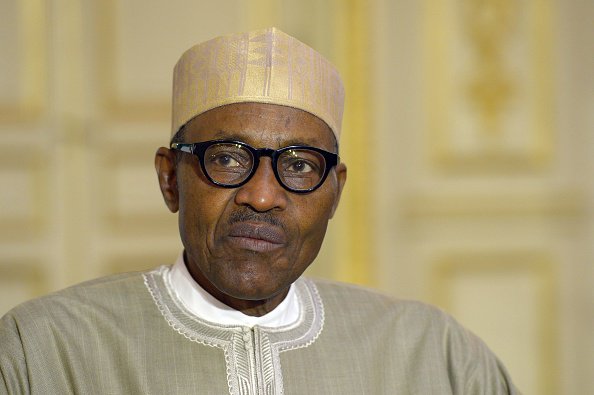
Stakeholders say Information and Communications Technology (ICT) industry under President Muhammadu Buhari’s administration in the past two years has not been immune to micro and macro-economic challenges affecting the economy. Adedeji Adeyemi Fakorede report
To say the last two years of the Information and Communication Technology (ICT) industry under President Buhari has been characterised by a medley of the good and the bad is saying the obvious. According to stakeholders, the ICT industry both from telecoms, hardware and software and value added service (VAS) perspectives have been having their fair share of the myriad of challenges facing the economy, especially the issue of lack of access to forex an attendant capital flight in some segments.
Overview
One of the major development that has dealt a death blow to the industry and currently left the industry in limbo is the removal of ICT industry players from the list of industries with direct access to foreign exchange (Forex) from the Central Bank of Nigeria (CBN).
According to Mr. Akin Akinbo, the government’s decision has adversely affected players in telecoms and hardware sectors of the economy. “For one, players in the telecoms and hardware segments of the ICT industry are finding it difficult to import equipment for infrastructure expansion due to lack of access to direct forex from CBN,” he said.
While organisations have been dazed by this development and rendered transfixed regarding their expansion plan, the consumers of the products and services have continued to be at the receiving end. Also, poor infrastructure continues to be major challenges for industry players while a number of policies being introduced the government are also hampering the industry. In terms of specific industry segment, stakeholders have also undertaken the assessment of the telecoms, hardware and software sub-sectors.
Telecoms
While appraising telecoms industry in the past two years of President Muhammadu Buhari, the President of the Association of Telecoms Companies of Nigeria (ATCON), Mr. Olusola Teniola, said the last two years has witnessed an admixture of ups and downs in the sector.
He noted that while some policies and legislative moves considered anti-people such as the communications service tax bill, proposed hike in data tarrif by setting floor price, among others, have reared their ugly heads, those policies have witnessed stringent resistance from the industry and they have been dropped.
He explained that while the industry is showing improved performance, especially in the area of contribution to the economy, the hitherto rise in subscriber base for voice and data services, are today declining because of a number of policies and challenges affecting the industry. He noted:
“Two years down the line under Buhari, I think data subscriptions have fallen from 97 million to about 90 million due to a medley of factors, while voice subscription has also witnessed irregular growth. Forex issue is hitting harder, affecting network expansion investment coupled with other challenges such as multiple taxation, vandalism and undistributed shutdown of base stations.
He, however, acknowledged that authorities are paying attention to issues bordering on telecoms infrastructure protection. Also speaking, Chairman, Association of Licensed Operators of Nigeria (ALTON), Mr. Gbenga Adebayo, said though the Nigerian Communications Commission (NCC) and the National Information Technology Development Agency (NITDA) have been doing a lot to put the industry on the path of growth, more was needed to support the ease of doing business in Nigeria.
Hardware
In his assessment, Chairman of Zinox Group, Mr. Leo Stan Ekeh, said the passion with which the current administration has been supporting ICT industry has been fairly commendable. He cited the recent executive order pushing for 40 per cent local content in all sectors for procurement by Ministries, Departments and Agencies (MDAs) of government and other organisations in the country as a welcome development.
“This kind of policy is good for the industry and the economy as a whole. However, we want government to deepen digital activities by automating all its processes in order to boost efficiency in service delivery to the citizens. Deliberate efforts should be made to enforce the executive order to boost patronage of locally made ICT products and services,” he explained.
Former Secretary of the Computer and Allied Product Dealers Association of Nigeria (CAPDAN), Mr. John Oboro, stressed the need for Buhari administration to grant increased relief for players in the Completely Knocked Down (CKD) sector of hardware for increased value creation in the economy.
Also, Chief Executive Officer, Slot System, Mr. Nnamdi, said forex issue has also been a challenge to mobile devices dealers, adding “the current administration, in the last two years, has not deemed it fit to effectively deal with the problem of grey market,” which, as he said, was affecting those who import their products using the legal routes.
Software
However, President of the Institute of Software Practitioners of Nigeria (ISPON), Mr Emadoye Olorogun, said there have not been deliberate efforts on the part of current government to support growth of software industry. He said, “We need increased collaboration on the part of the National Office for Technology Acquisition and Promotion (NOTAP) and the National Information Technology Development Agency (NITDA) and software practitioners towards reducing the over-reliance on foreign software packages, especially where locally-developed ones are available.
This has not changed under Buhari in the last two years.” Another software practitioner, Dr. Chris Uwaje, said, “We expected strategic national direction to be charted by the government in the last two years towards building ‘Software Nigeria’ but this has not been the case and we expected more collaboration towards curbing billions of Naira lost as capital flight to penchant for foreign software consumptions in Nigeria.”
VAS
Also, Value Added Service Providers under the auspices of the Wireless Applications Services Providers of Nigeria (WASPAN), said the lopsided sharing formula between them and telecoms service providers have not yet been addressed. WASPAN National Coordinator, Mr. Chijioke Ezeh, said the VAS market is worth billions of Nigeria and that the Nigerian government, through the NCC, should do everything possible to grow the sub-sector through policies that ensure their survival.
“For two years, we have been waiting NCC, following series of stakeholders’ meetings, to come up with a direction to grow VAS market, but we have not fully ironed out this, But we are engaging.” Generally, while telecoms segment of the ICT industry remains outstanding in terms of good regulatory activities driven by the NCC, despite of the myriad of challenges in the industry, experts say the next two years of the current administration should be geared towards strengthening policies that will further put the overall ICT industry on the path of consistent growth.
| 5:04 PM (1 hour ago) | |||
| ||||
Expert to govt: Focus on ICT devpt
Nigeria must explore information and communication technology in its drive for the diversification of the national economy, a chartered information technology professional, Olusola Fatiregun, has said.
Fatiregun spoke at the public presentation of his book, “A practical guide to software testing” held in Lagos. He said Nigeria needs to diversify from oil dependence to ICT, noting that countries without oil have used the sector to leverage their economies.
The author also noted that the country can tap into information technology to address the prevalent problem of youth unemployment. Fatiregun described ICT as the future, and called for massive investment in the sector by the Nigerian government. He said,
“A lot of countries that do not have oil resources have used ICT to leverage their economy. Example is Rwanda, after many years of war. Now Rwanda has highest number of youth millionaires through ICT in Africa. “So, this is to tell you that ICT is another very huge alternative source to oil.
Not only will oil dry up, knowledge never dries up, especially ICT is in a fast changing world. “In the United Kingdom, for example, they saw it that ICT was going to be the future. So, the country invested massively in ICT, paying for training for individuals;
I benefitted from one of the schemes of the UK. They actually paid for some of my certifications. “I know the (Nigerian) government is aware that ICT is the way forward. But I don’t know if they are scared to take the bold step or they are getting the wrong advice.”
Fatiregun, who stated that his new book, was a guide for anyone converting into ICT, lauded the proposed establishment of an ICT university by the Federal Ministry of Science and Technology. He, however, canvassed government- funded training courses for individuals in the sector.
“It’s a good thing to have an ICT university but that’s going to bring long-term, far-reaching benefits. You are not going to be realising the benefits in the next 10, 20 years. So, what’s going to be happening to our unemployed youths?
“We need the government to invest massively on short-term, skill-based training courses. Individuals can get on the courses and within a period of one month, they get certified and they are ready for work. This is what is happening in the developed world, I don’t see why we cannot replicate the same in Nigeria.”
You may like
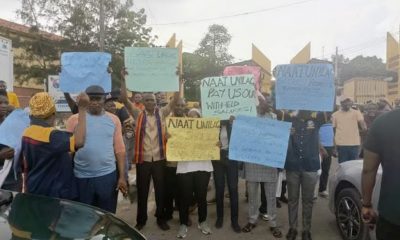

SSANU, NASU members block UNILAG gate over withheld salaries
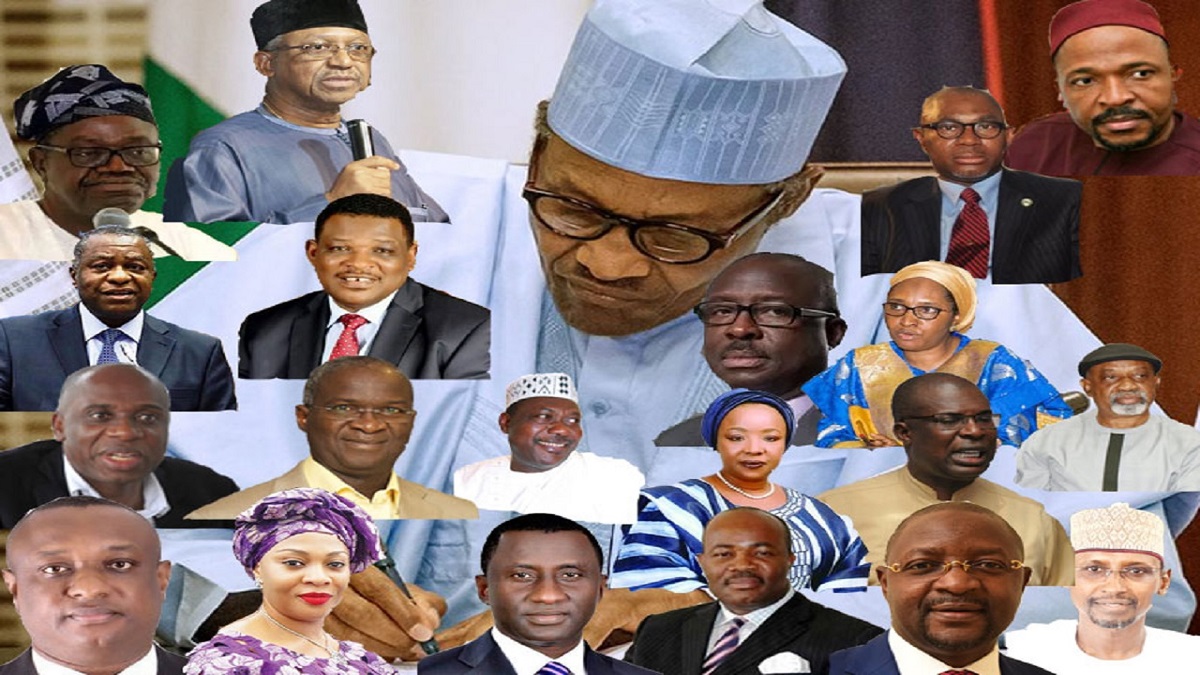

The costly impotence of Buhari’s presidency
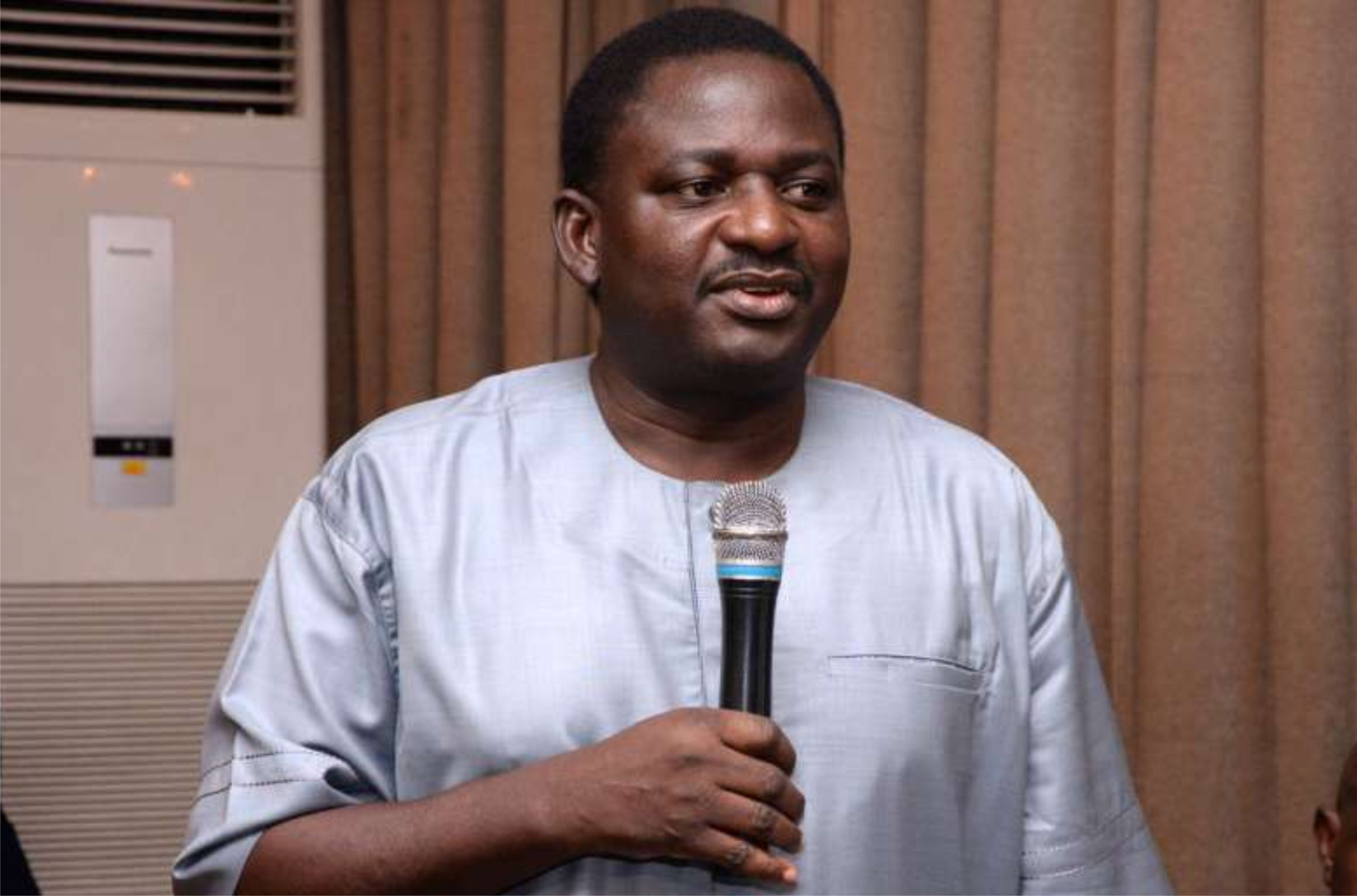

FG did not suspend removal of fuel subsidy because of 2023 elections – Femi Adesina


President Muhammadu Buhari on why he didn’t sign the electoral bill passed in NASS
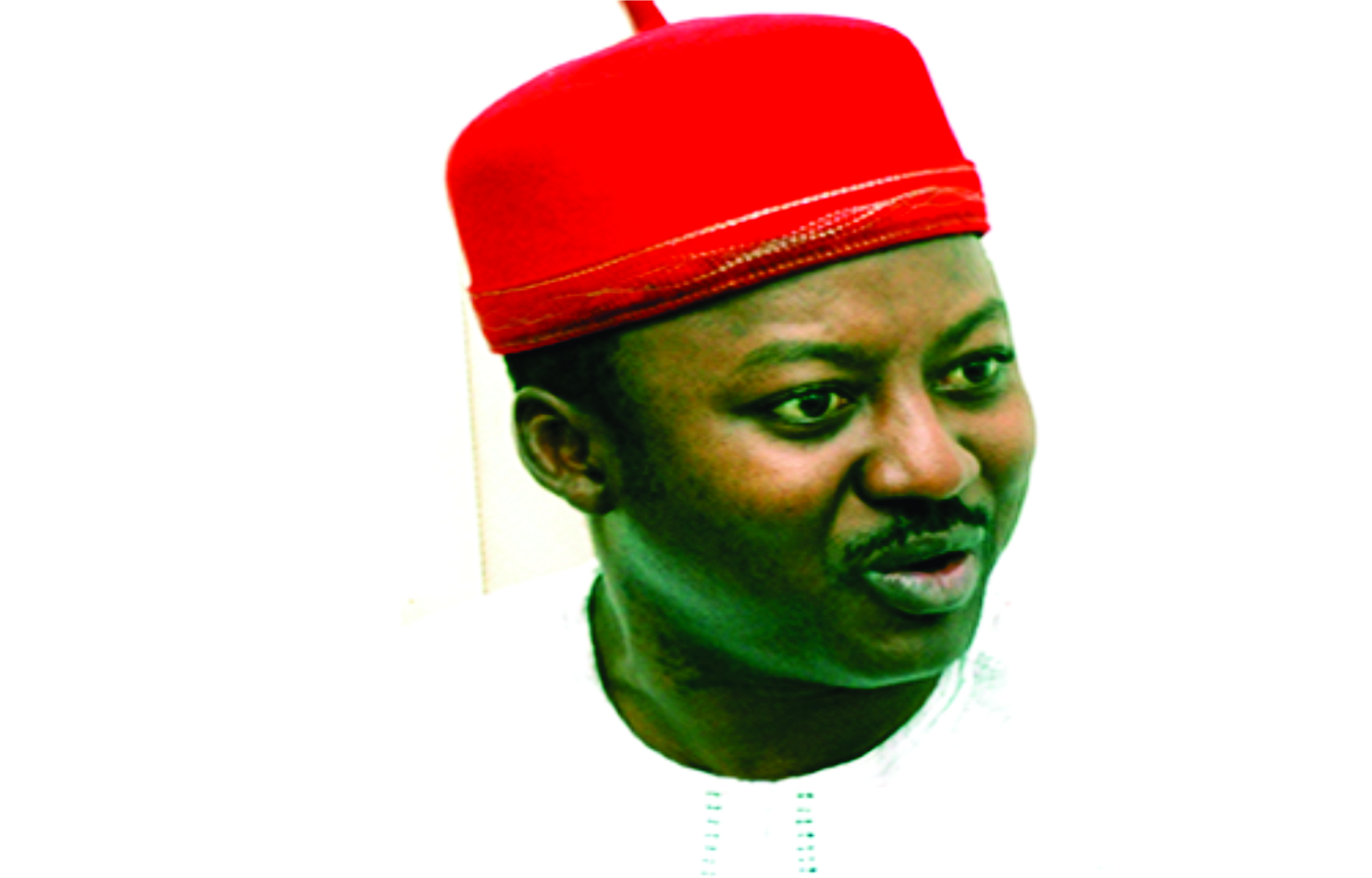

Buhari’s six years’ score card horrible, failed in all sectors – Onovo


Buhari felicitates with Obasanjo at 84
Trending

 Football6 days ago
Football6 days agoGuardiola advised to take further action against De Bruyne and Haaland after both players ‘abandoned’ crucial game

 Health & Fitness11 hours ago
Health & Fitness11 hours agoMalaria Vaccines in Africa: Pastor Chris Oyakhilome and the BBC Attack

 Aviation1 week ago
Aviation1 week agoDubai international airport cancels flights as flood ravages runway, UAE

 Featured4 days ago
Featured4 days agoPolice reportedly detain Yahaya Bello’s ADC, other security details

 Comments and Issues6 days ago
Comments and Issues6 days agoNigeria’s Dropping Oil Production and the Return of Subsidy

 Education5 days ago
Education5 days agoEducation Commissioner monitors ongoing 2024 JAMB UTME in Oyo

 Business5 days ago
Business5 days agoMaida, university dons hail Ibietan’s book on cyber politics

 Education1 week ago
Education1 week agoOsun NSCDC solicits cooperation towards national assets protection

